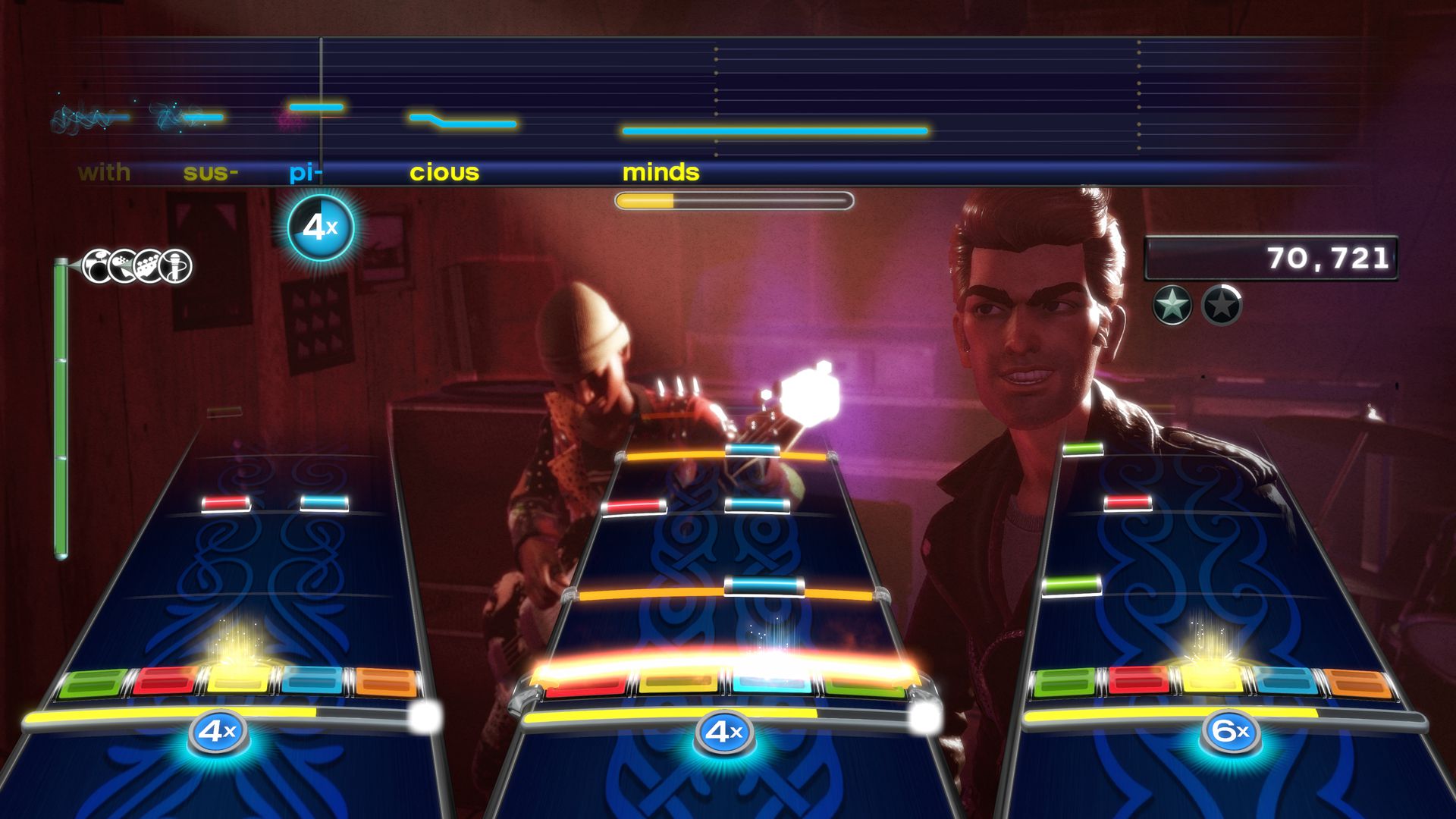And here I thought I could rock out in peace.
The original tale
Screenshots of the original reviews exposed a number of Harmonix employees self-promoting their game, but without any indication of their personal investment in the franchise. Harmonix released a statement addressing this:
Not “appropriate” puts it lightly. unfortunately for consumers of all types of products, this tactic is neither new nor uncommon. But it’s one thing to understand that it’s dishonest, and another entirely to catch a guilty party in the act. The practicality of a review-based system defeats itself with such a pattern in place, after all.
Nitty gritty details
Matthew Nordeus, project manager Jayne Tan, consultant at Harmonix Christ Foster, senior designer Morgan Milardo, Harmonix’s legal and music coordinator Richard Cody, audio quality analyst Shawn Witt, lead character artist Nick Mudry, publishing associate
Matthew Nordeus went back to revise and clarify his review rather than delete it entirely:
Nordeus’s review was one of the shortest and most playful in the revealing screenshot. His claim that it was made “half in jest” may well be sincere, though it’s hard to believe it didn’t occur to any of the employees to mention their involvement in the game, especially the game’s project manager. I’d find it far stranger had he not enjoyed the experience.
Even the dude with the creepy smirk knows that ain’t cool.
Not all the reviews were so innocent in nature. Some were very obviously deceptive, ranging from Morgan Milardo claiming to be “a new fan” and Jayne Tan forgetting “how fun this game could be.” Shawn Witt spoke of the game as if he wasn’t intricately involved in its development:
Witt lays it on thick, only hinting at any personal bias with the vague mention of songs he personally “wanted to bring into the new game.”
I’ve been playing the series since the beginning, and am a pretty serious gamer. It’s astonishing that they were able to support DLC from that many years ago, as well! I’ve never heard of a console game supporting DLC from a previous console generation! They don’t have support for every song I wanted to bring into the new game, but I’ve already been able to bring hundreds of dollars worth of songs I previously bought to fill out a soundtrack that is now pretty tailored to my taste in music."
Misleading reports don’t end there. Jayne Tan addressed 1-star ratings of the game in her own review, adding: “. . . I suppose some (not all) are valid, but I simply cannot echo the negativity.” Really? A Harmonix consultant can’t jump behind poor reviews of their new release? Color me surprised, for I cannot contain the disbelief in my naive, gamer soul.
The truth of the matter: Rock Band 4 isn’t where developers need it to be.
The singing of a game’s praises by someone involved in its development belongs in an interview and promotional statements, NOT product reviews utilized by unsuspecting gamers. The employees’ decision could have stemmed from pressure to see the game take off and hold strong. Mad Catz stands in danger of falling victim to debt and operating losses, as revealed earlier this year in July.
It turns out that the reception of Rock Band 4 is extremely mixed, ranging between an ominously negative 1 star to cheery 5 star ratings. Professional critics of the game rate higher than consumer reviews.
A look at Metacritic highlights this pattern. The game’s Metascore lands it in a “generally favorable” spot according to the site’s guidelines. Not a single critic rated it any lower than “mixed,” which left thirty-one of the forty-two reviews positive. User’s (about 64 of them) gave the game a 6.3 out of 10 on average, landing their review on the “mixed” portion of the scale. Complaints in the most negative reviews note a subpar playlist and the immediate necessity of a patch to counter all bugs and glitches not caught before the game’s release. The most common mentions in mixed reviews include that the five year wait fora fresh release in the series also didn’t result in many changes and song variety actually teetered off in the direction of nonexistent.
He leaps away from negativity, but not far enough.
One review article on KnowTechie elaborates on the disappointing aspect of the game in its lack of innovation:
This comparison arose after the reviewer, Josh Knowles, grew bored of the game after an hour of play time.
TrustedReviews gave Rock Band 4 a 7 out of 10, addressing the lack of innovation again as one con and adding the expensive price tag the game proudly wears as a second con. Overall, they gave the new songs and addicting gameplay a thumbs up.
A self-proclaimed “huge fan” of the series titled his own review “Surprised how accurate the negative reviews were.” None of these bode well. Lost features from previous installments stand at the top of the list of disappointments the game has in store for established fans.
Mixed reviews don’t necessarily break a game. However, anything on the “meh” section of the excitement scale does not attract new players. The problem is that Mad Catz really needs Rock Band 4 to do considerably well for the sake of their finances. Their company depends on the game’s sales, and Harmonix’s fate ties closely in with it.
While I can’t approve of dishonest tactics, there’s no denying that the companies are fighting to squeeze out of a tight spot. Desperate times call for desperate measures. Unfortunately, Harmonix employees got caught in their walk of shame away from those desperate measures, which was admittedly awkward for all involved.
An added threat
How do you feel about this whole mess? Share your thoughts below.





